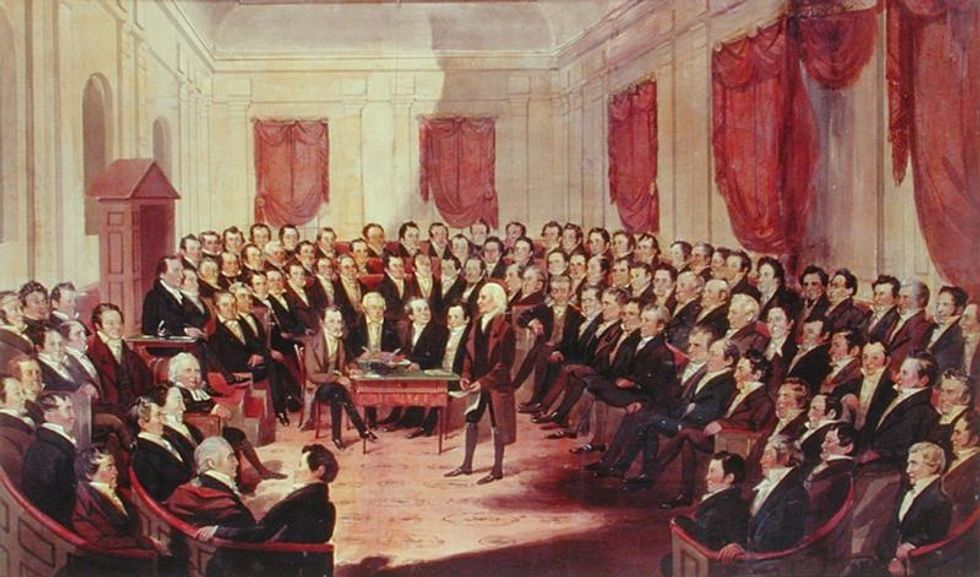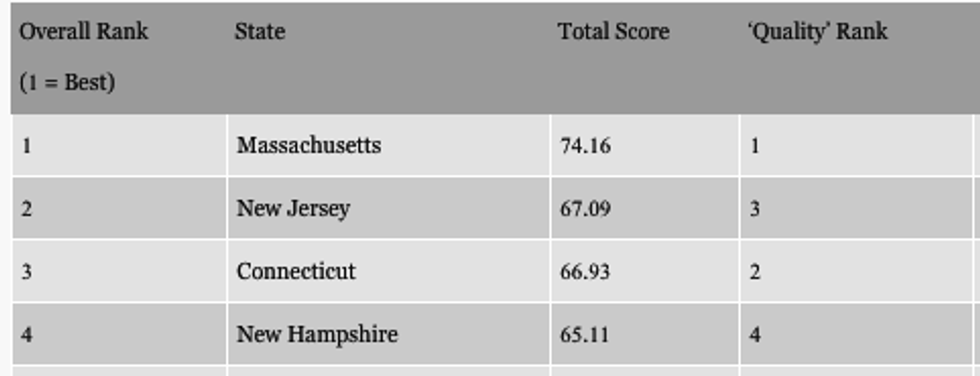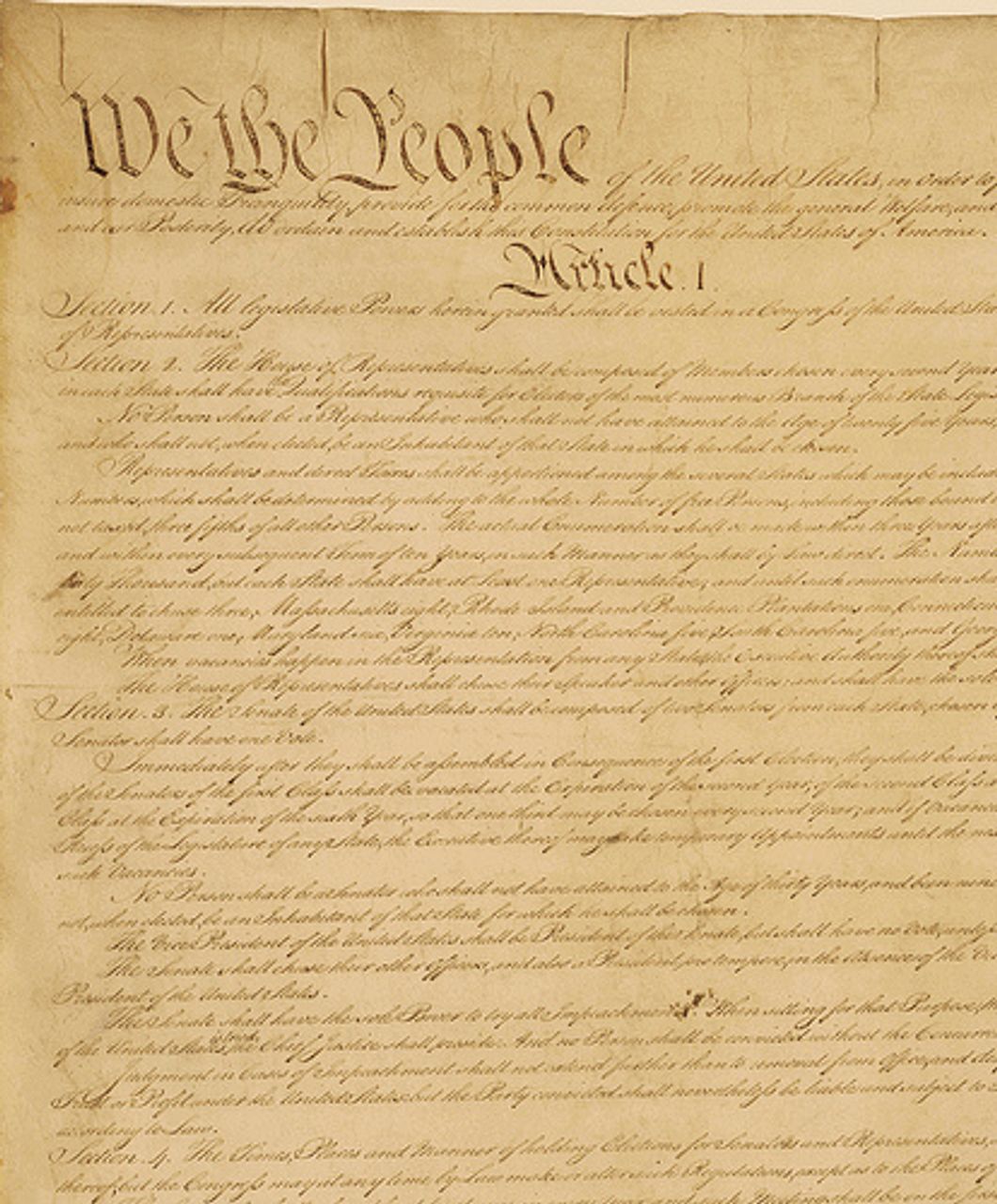The Problem With American Democracy Is That It Was Never Meant To Be A Democracy
The United States, along with a variety of other Western countries, suffers from a problem inherent within any representative or direct democracy.
The United States has had a number of names for its political system. Most recently, it's been "representative democracy." Interestingly enough, 200 years ago, when crafting the Constitution and Declaration of Independence, the Founding Fathers were struck with terror at the thought of a democracy. The most egregious element of popular democracy was "tyranny of the majority."
Tyranny of the majority is a philosophical argument used primarily in the formation of the United States government. After the failure of the Articles of Confederation, a delegation was tasked with drafting a new guiding document for the country, what we now know to be the U.S. Constitution. During the ratification process, three notable Founding Fathers — Alexander Hamilton, James Madison, and John Jay — wrote a series of articles arguing to ratify the Constitution. These articles are commonly known as The Federalist Papers. These papers lay down the philosophical framework for the American constitutional system. They are meticulous, detailed, and explore the deep ends of governmental philosophy.
These Federalist Papers also outline tyranny of the majority. Federalist No. 51, written by either Alexander Hamilton or James Madison (historians are unsure of which founder wrote which exact articles), states, "If a majority be united by a common interest, the rights of the minority will be insecure." What they meant was that allowing the majority to rule (i.e. how rule is done within a democracy) allows the oppression of the minority. Ironically, at the time, the Founding Fathers weren't talking about racial, cultural, or ethnic minorities. Rather, they were defending the wealthy.
They believed that allowing majority rule would create votes to take from the wealthy, destroy what the wealthy had, and effectively oppress their rights. It is likely that Madison and Hamilton were right. They used this logic to argue against a democracy and instead for a system of checks and balances and delegation. This system of checks and balances would limit each branch of government. Moreover, they believed that delegates would limit the influence of majorities in two ways: (1) centering the vote of geographical areas to one representative, and (2) the expectation that elected representatives would be the best of people (most intelligent, honest, driven, etc.).
The government created by the Federalists is known as a Republic, not a democracy. The Founders instituted numerous controls to limit the power of the people. Some of the founders even believed that the people should have even less of a say due to their lack of experience and intelligence.
But with the initial passing of the Constitution came a third limit to majority power: Senators. At the time, Senators were not elected through the popular vote, rather by state legislatures. This meant that the House of Representatives was elected by the people, and the United States Senate was chosen by the State governments. The Senate, the Federalists thought, could be an effort to block ridiculous bills that may originate in the House from the people. Another example of a defense mechanism against "mistakes by the people" is the electoral college.
But in the 19th century, with the Progressive movement gaining traction, the 17th Amendment was instituted, leading to the direct election of senators. The power was stripped away from state legislatures and instead given to the people. While this may sound merry, it has been a turn for the worse.
Because the Federalists were right: the general public tends to be uninformed, the general public tends to lack knowledge on critical issues, and frankly, the general public is not suited to deal with the growing problems of this country. The Senate exists to serve as a check on the House, to ensure that the people and the representatives do not get out of hand with legislation. But with the direct election of Senators, that is no longer the case.
This, along with efforts to eliminate the electoral college brings us closer and closer to become a democracy. As a country, we have already strayed from the principles of a Republic. The term "representative democracy" has only recently been coined. It did not exist at the time of the founders because there was almost no democracy. The Progressive Era changed that for the worse. The ultimate problem with American democracy is that we were never established as one, becoming one would hurt us, and yet we are getting closer and closer to being a democracy.



























